
خصائص فريدة
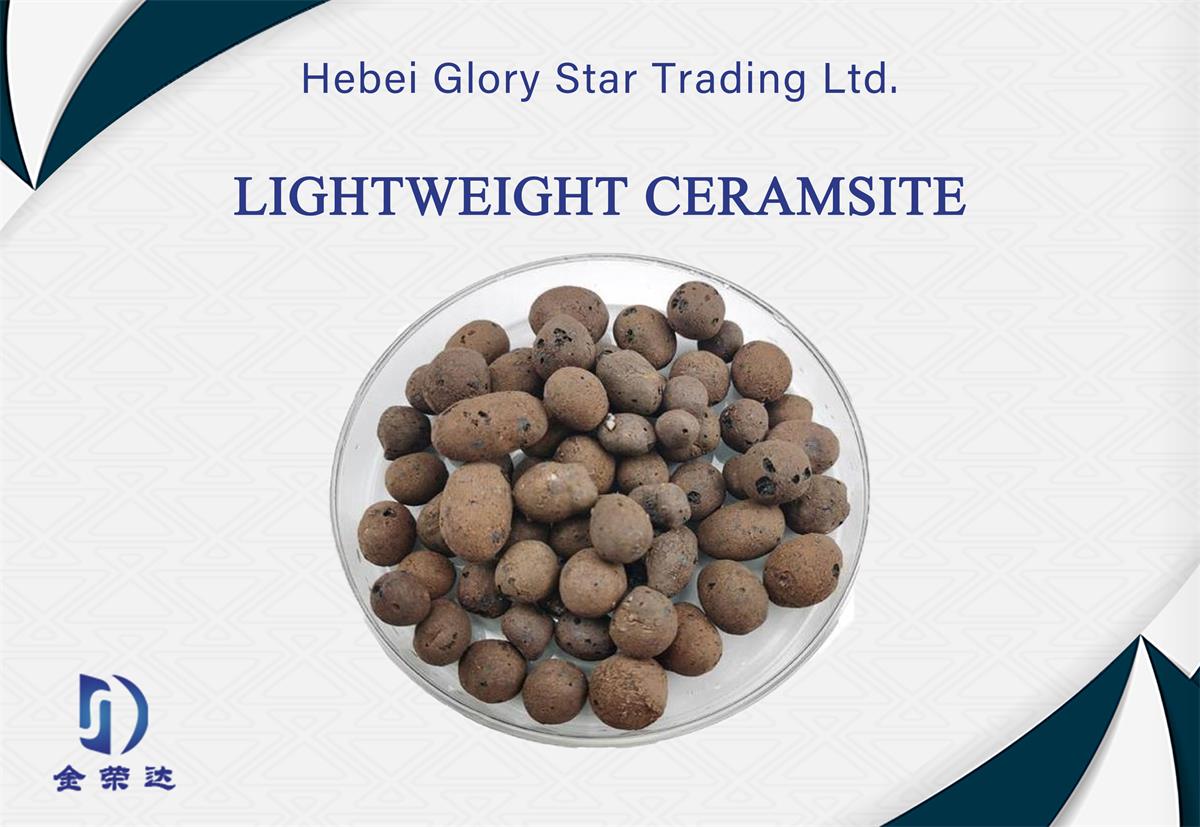
تعتبر المواد الطينية الخفيفة المتوسعة (LECA)، المعروفة أيضًا باسم سيراميسيت خفيف الوزن، مادة متعددة الاستخدامات تشتهر بخصائصها الفريدة وتطبيقاتها واسعة النطاق.
LECA (ركام الطين المتمدد خفيف الوزن) مصنوع من مواد خام من كرات الطين، وذلك من خلال حرقها على درجة حرارة عالية في فرن دوار. LECA هو وسط نمو يُستخدم على نطاق واسع في البستنة وتنسيق الحدائق؛ وهو مادة حشو خفيفة الوزن، مقاومة للتآكل، عازلة للحرارة والنار والرطوبة والصوت، تُستخدم على نطاق واسع في البناء.
خصائص LECA
| اسم المنتج | LECA, Expanded Ceramsite, Lightweight Clay Balls, Horticulture Clay Pebbles |
| مظهر | كرات بنية خفيفة الوزن |
| الأحجام الرئيسية | 1-4 مم، 4-8 مم، 8-10 مم، 11-14 مم، 8-16 مم، 10-35 مم |
| الكثافة الظاهرية | 0.25-0.45 جم/سم3 |
| نقاء | ≥99% |
| درجة الحموضة | 6.5-7.5 |
| امتصاص الماء | 15% كحد أقصى |
| التعبئة والتغليف | 50 لتر/كيس، 1100 لتر/طن كيس، التعبئة والتغليف حسب الطلب. |
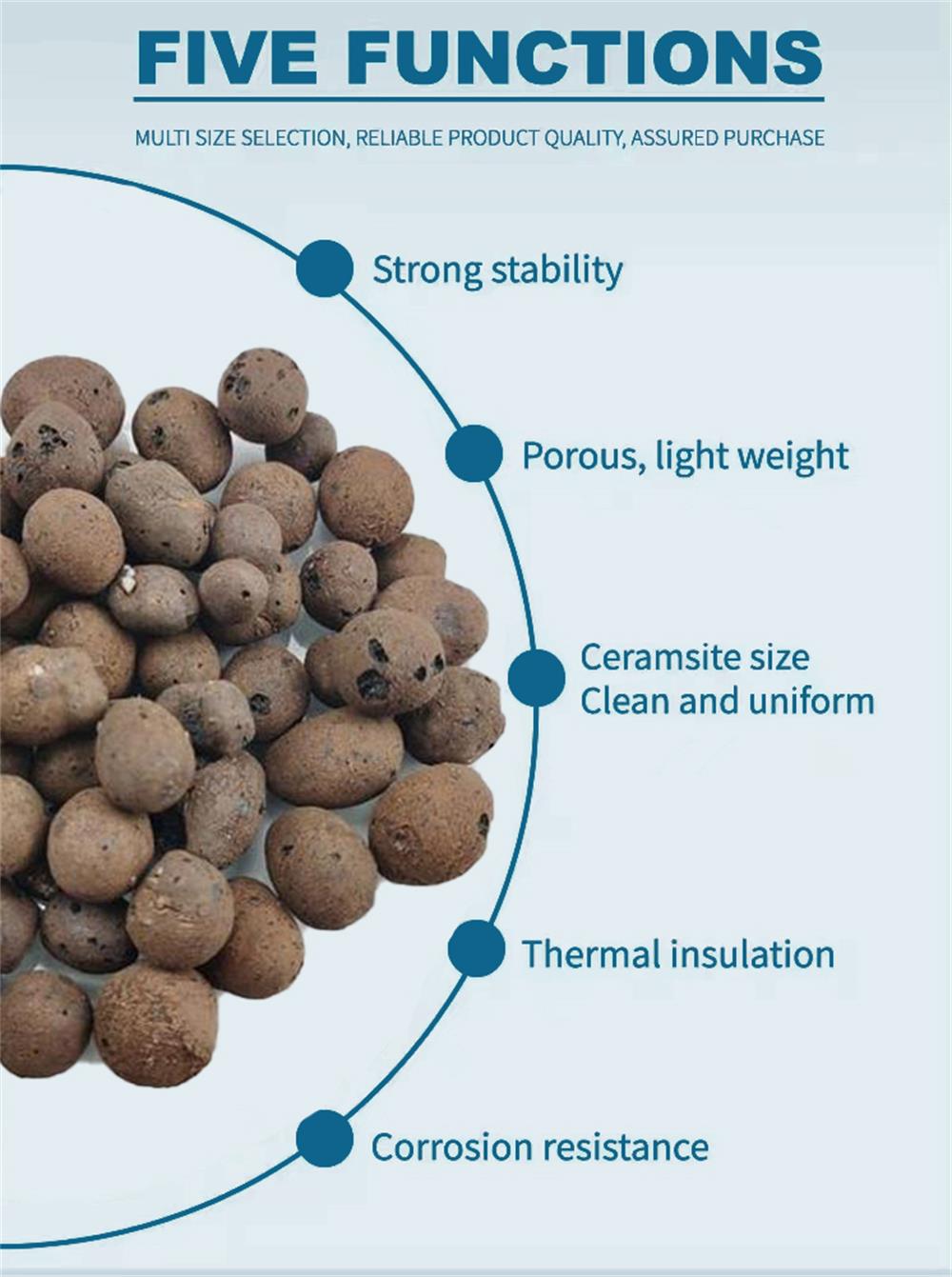
1. كثافة منخفضة: تتميز مادة LECA بخفة وزنها بشكل استثنائي، مما يجعلها خيارًا مثاليًا للتطبيقات التي يكون فيها تقليل الوزن الهيكلي أمرًا ضروريًا، مثل الخرسانة خفيفة الوزن أو الأسطح الخضراء.
2. المسامية العالية: يوفر هيكلها المسامي خصائص عزل ممتازة، مما يعزز الكفاءة الحرارية ويقلل من استهلاك الطاقة في المباني.
3. الخمول الكيميائي: تتميز مادة LECA بخمولها الكيميائي، مما يضمن مقاومة التآكل والتدهور والعوامل البيئية، مما يجعلها مناسبة للاستخدام طويل الأمد في تطبيقات مختلفة.
4. تصريف ممتاز: الطبيعة المسامية لـ LECA تسهل الصرف الفعال، مما يجعلها مفيدة للاستخدام في المناظر الطبيعية والبستنة وبناء العشب الرياضي.
5. المتانة: تتميز مادة LECA بالمتانة ومقاومة التآكل المادي، مما يضمن طول العمر في التطبيقات مثل تحسين التربة ومواد الحشو خفيفة الوزن.
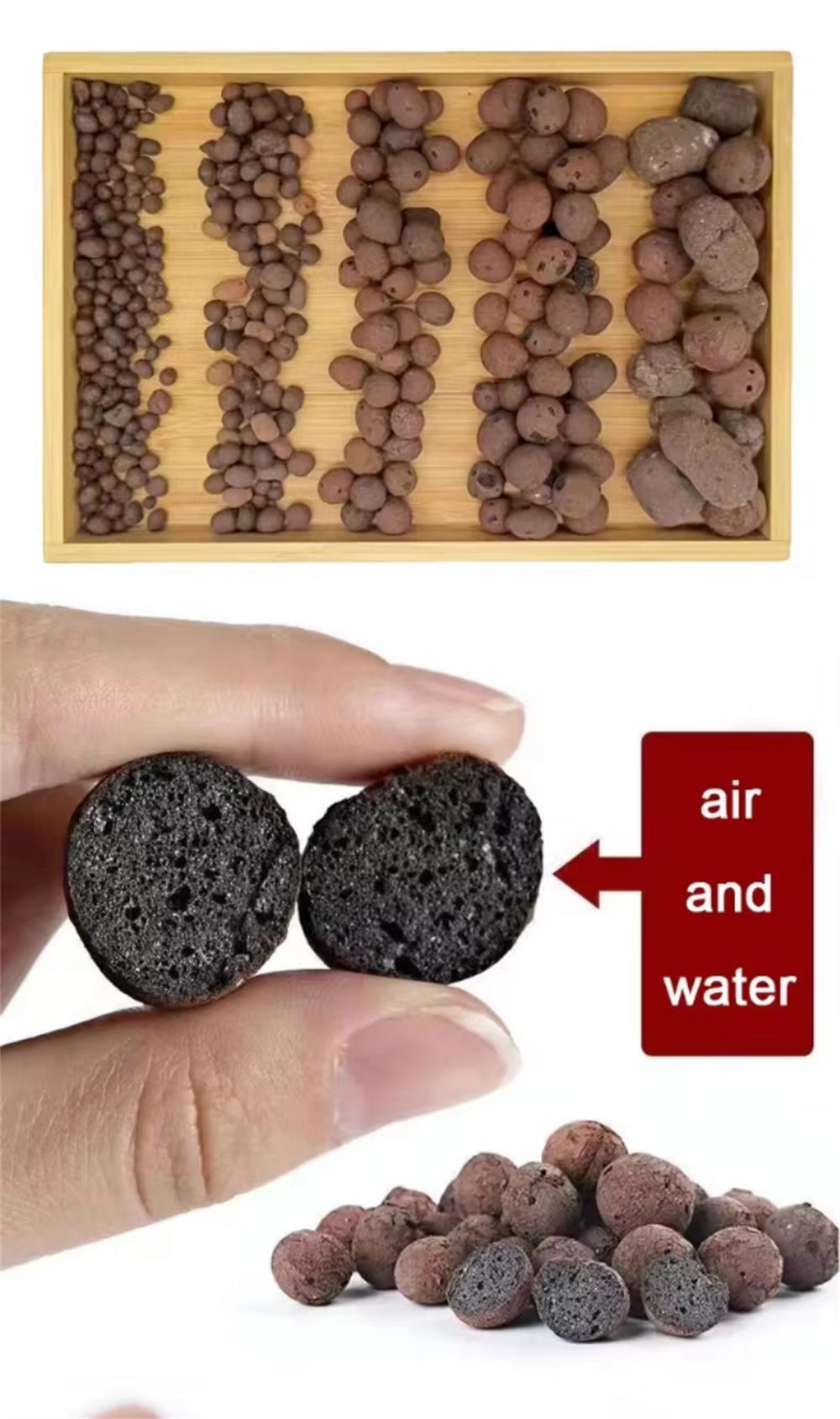
مواصفات المنتج
الأحجام الرئيسية للطين الموسع:
1-3 مم، 2-4 مم، 3-9 مم، 4-8 مم، 6-10 مم، 8-12 مم، 8-16 مم، 8-24 مم، 11-14 مم، 10-20 مم، 10-30 مم
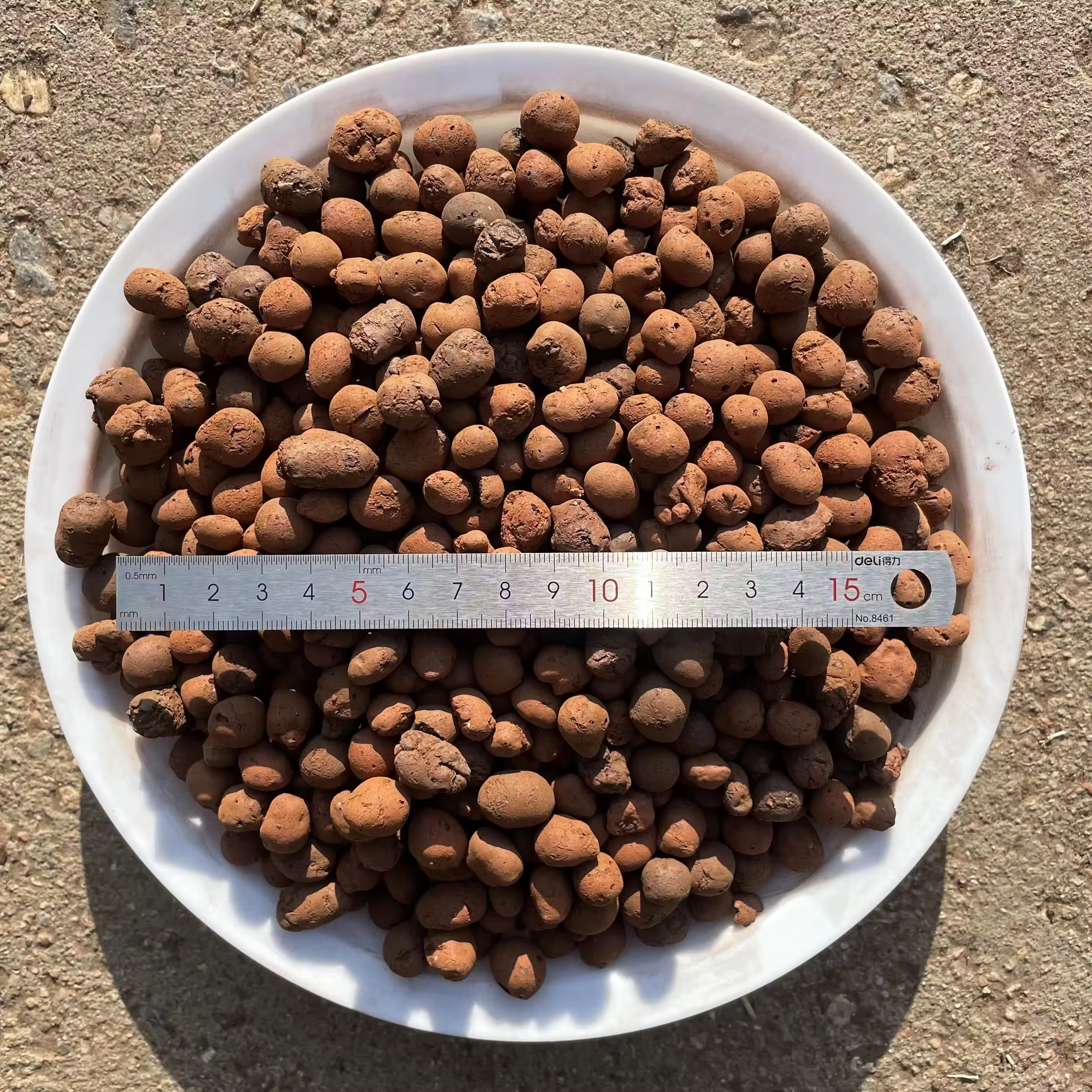
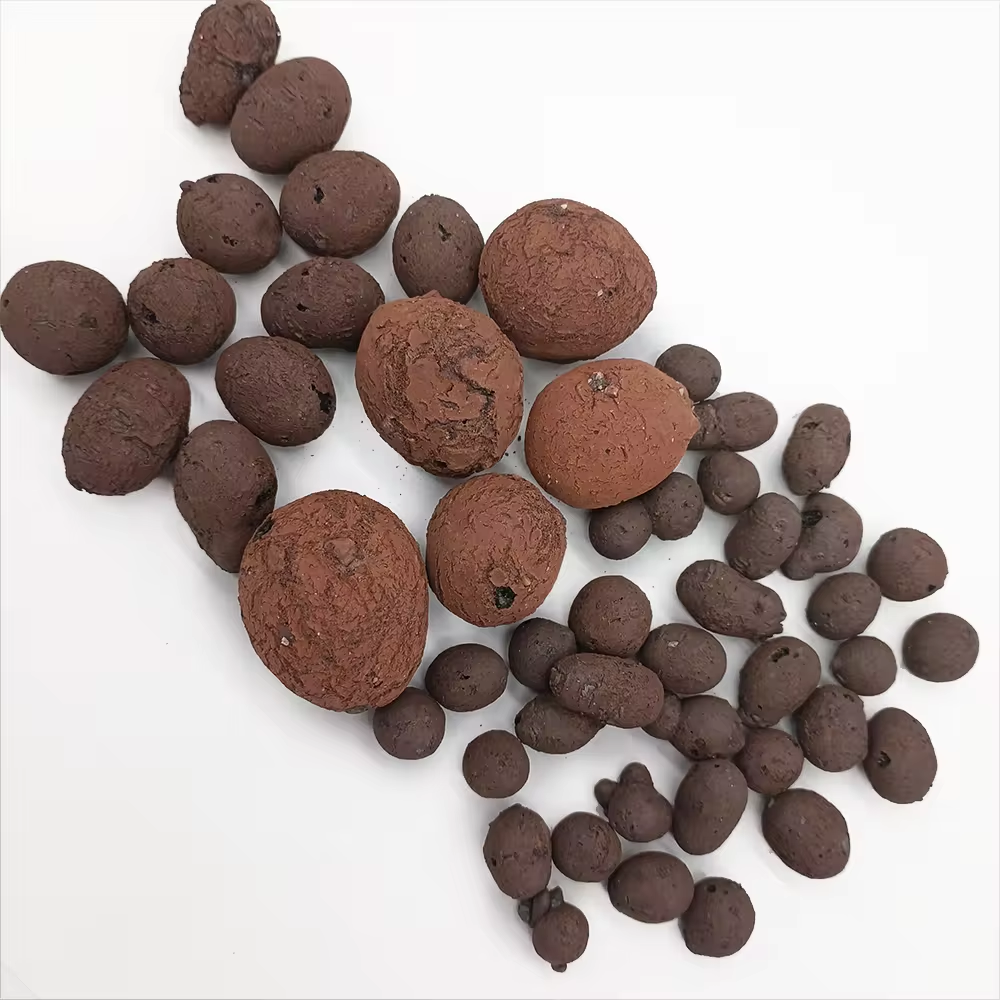
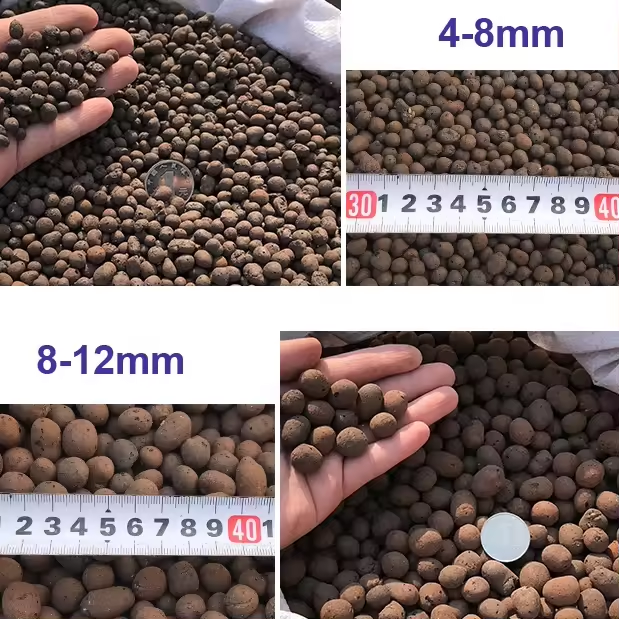
تطبيق المنتج
تُستخدم LECA على نطاق واسع في البستنة والزراعة المائية:
1. يمكنه الاحتفاظ بالمزيد من الرطوبة.
2. The porous and lightweight structure of LECA can increase aeration to the plants’ root systems.
3. تعمل الحصى الطينية الممتدة أيضًا على تحسين الصرف وهو أمر مهم للحفاظ على صحة أنظمة الجذور ومنع التعفن.
4. تعتبر الحصى الطينية الموسعة أيضًا وسيلة جيدة لضمان الدعم المناسب لنباتاتك.
تطبيقات LECA في البناء:
1) يستخدم في إنتاج الخرسانة خفيفة الوزن.
2) تستخدم في ردم الهياكل الأساسية والجدران الاحتجازية ودعامات الجسور وما إلى ذلك.
3) تستخدم في صب الطوب الخرساني المسبق الصنع والألواح.
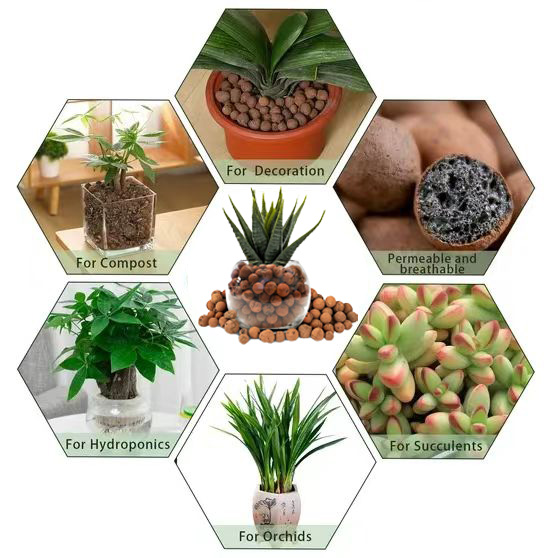
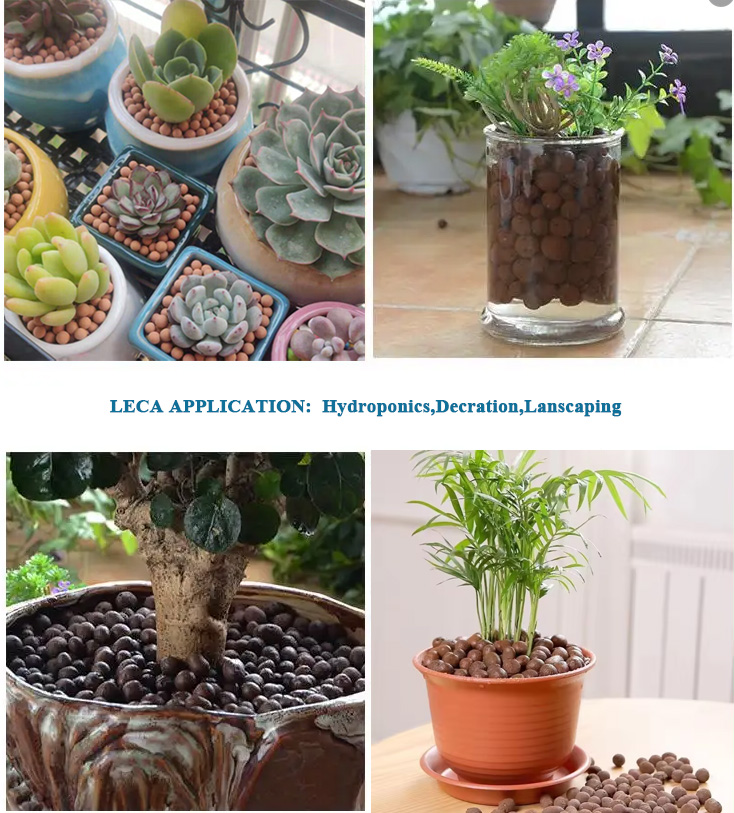
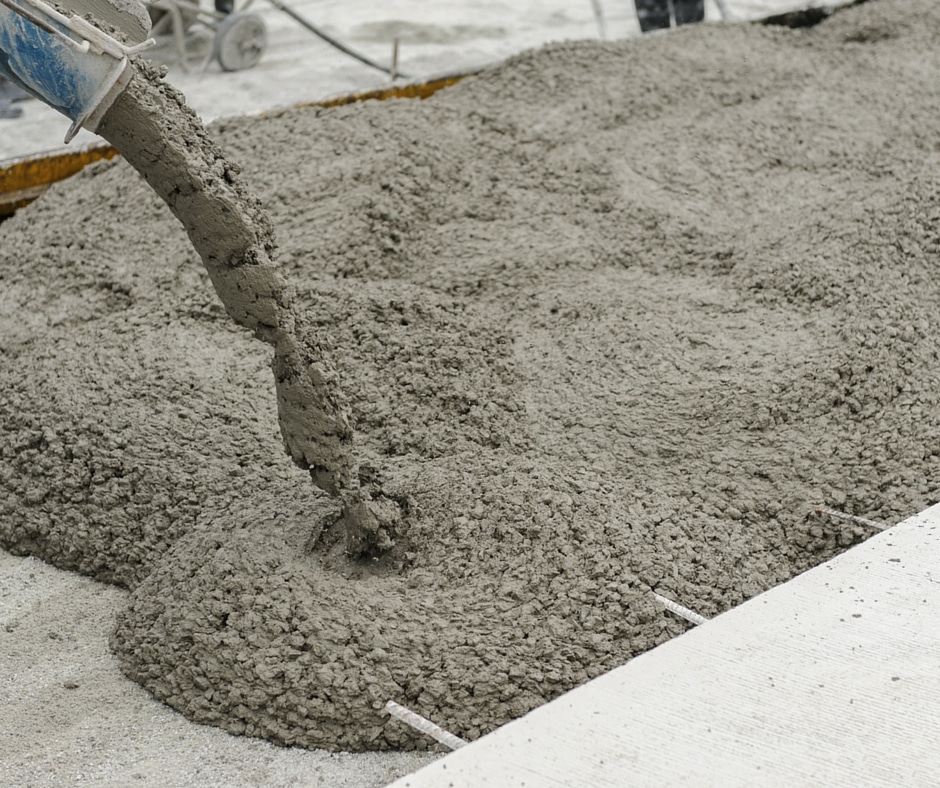
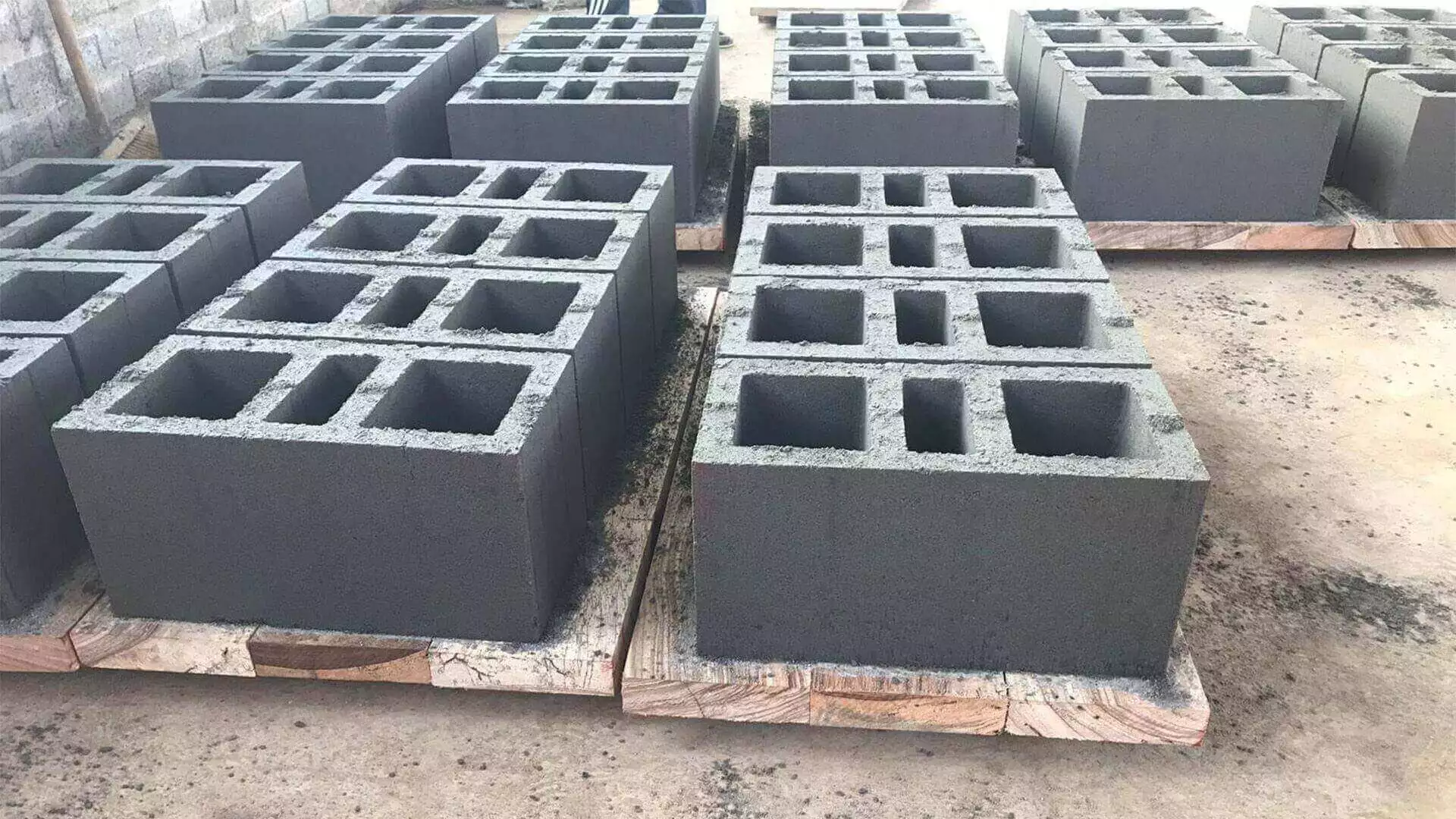
جولة في المصنع
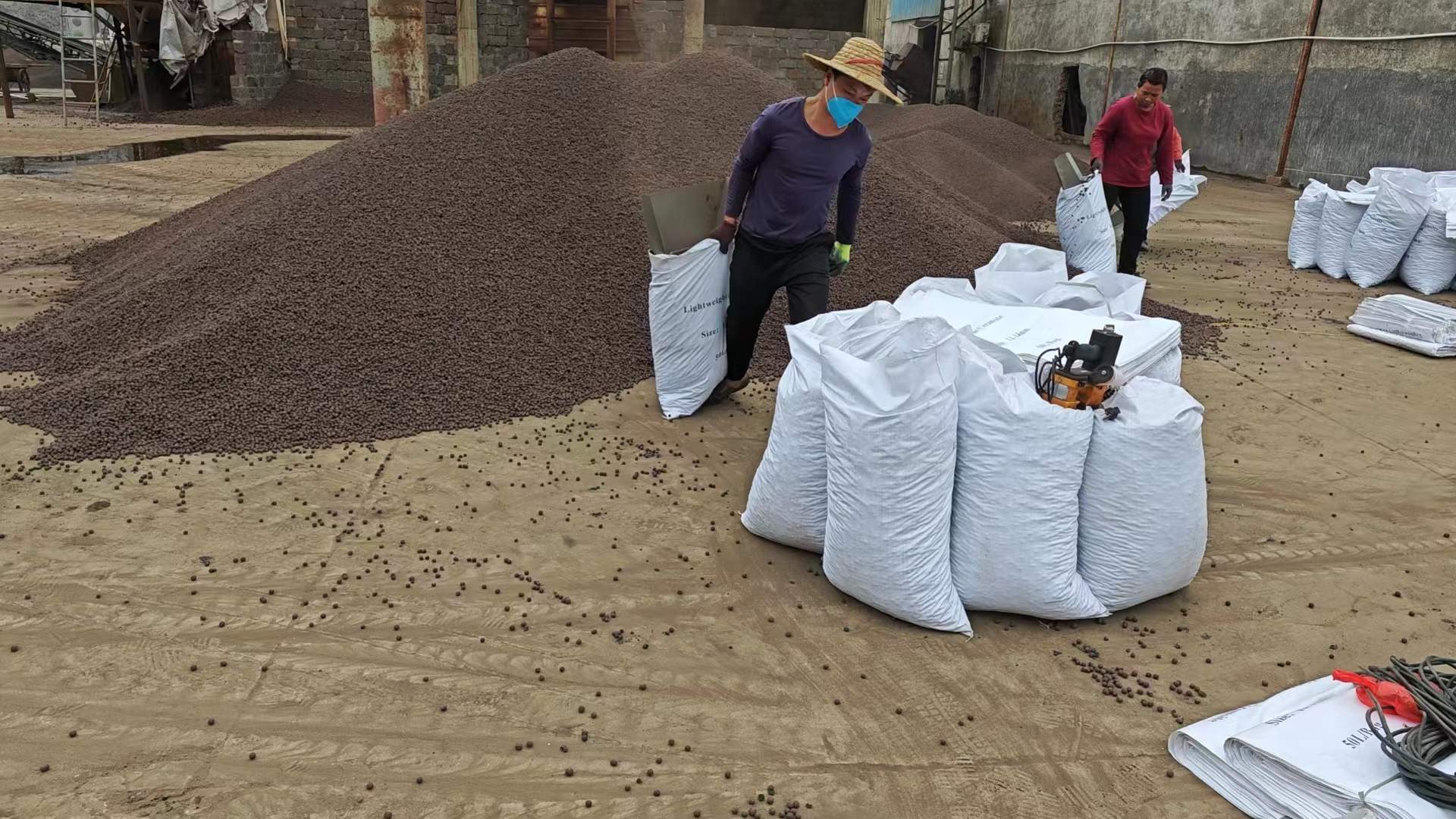
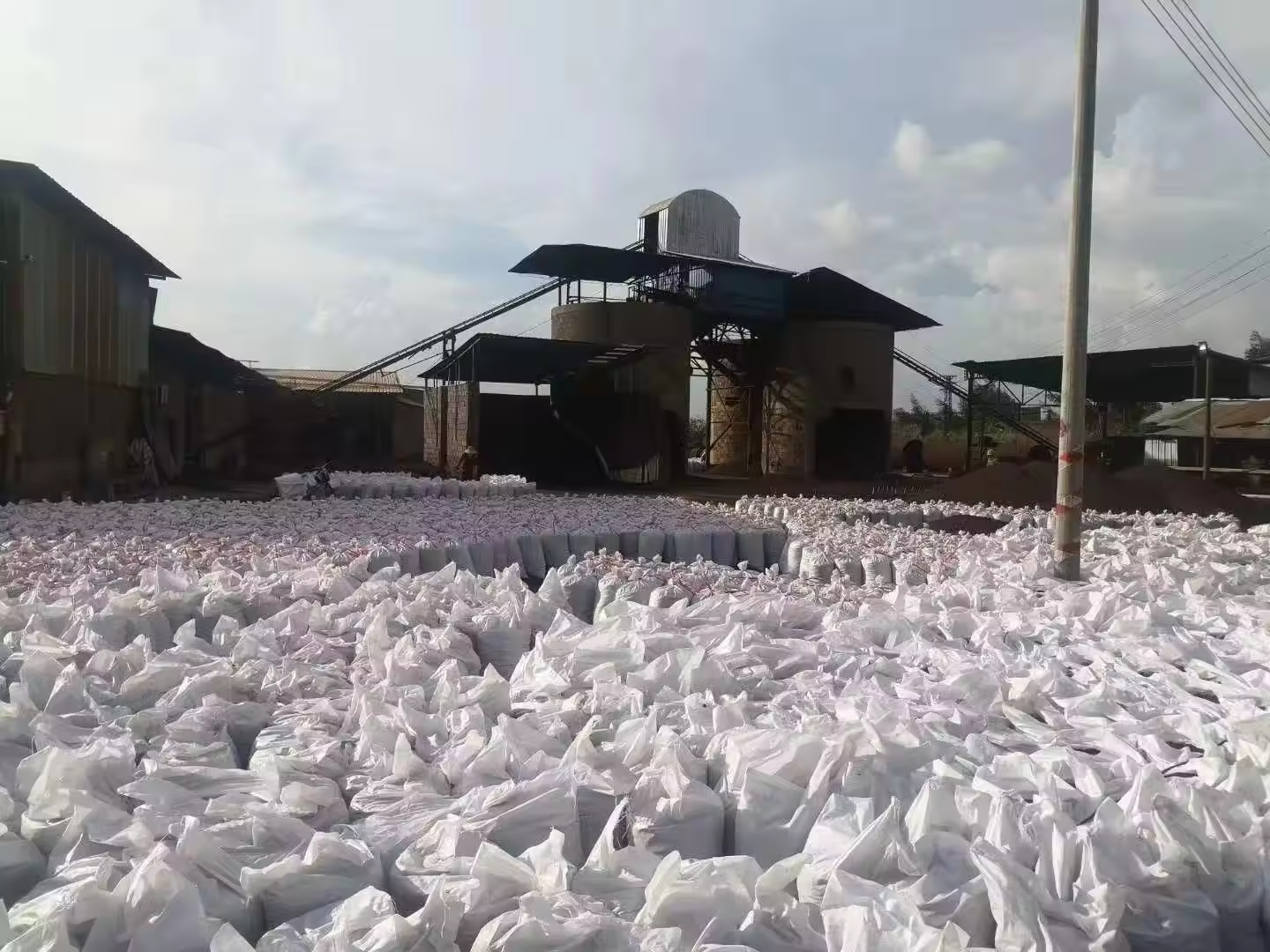
التعبئة والتغليف
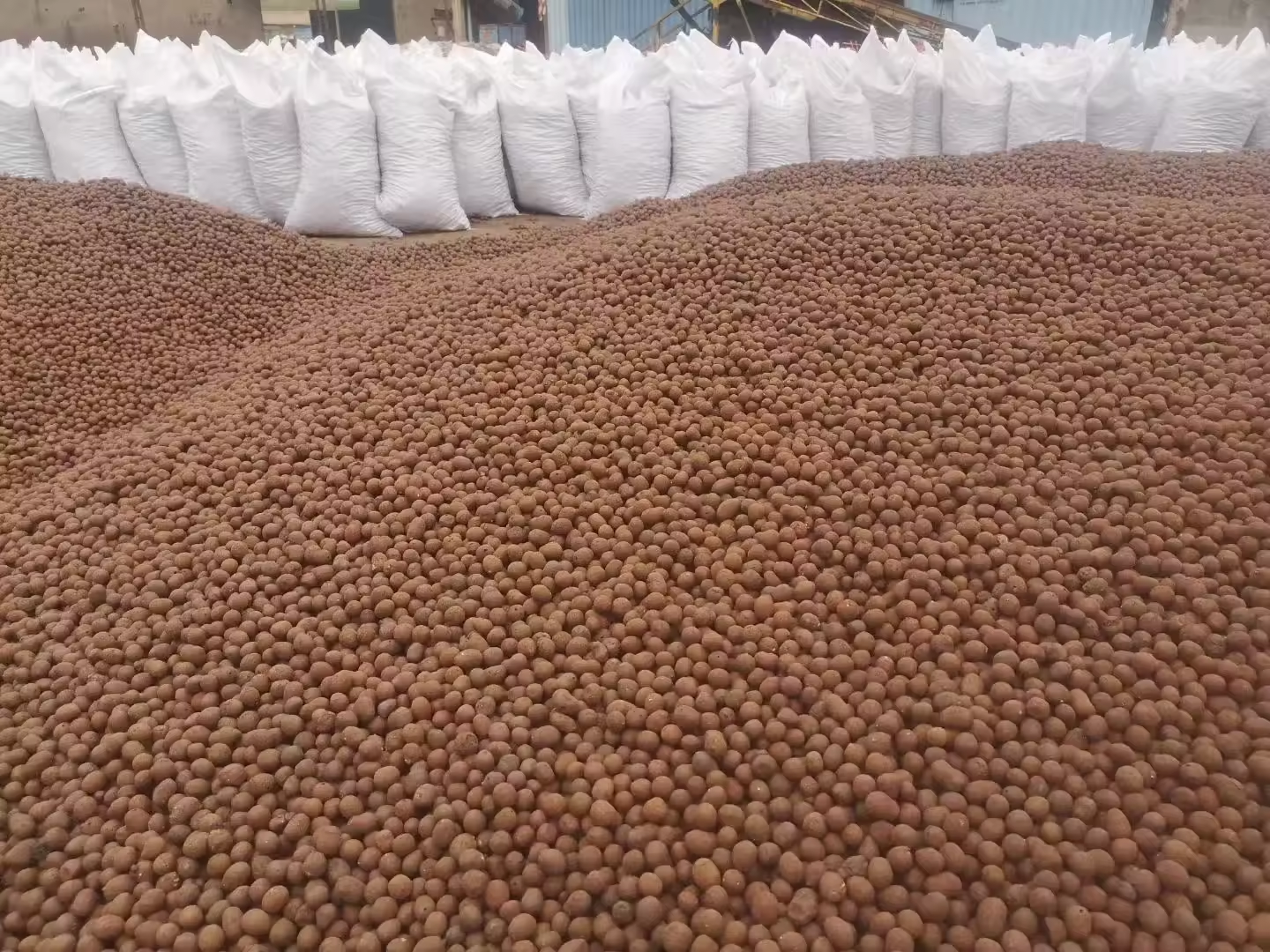
1. حقيبة منسوجة من مادة البولي بروبيلين البيضاء سعة 50 لترًا:
3. كيس 1000 لتر/طن؛
3. يمكن تخصيص التعبئة الأخرى.
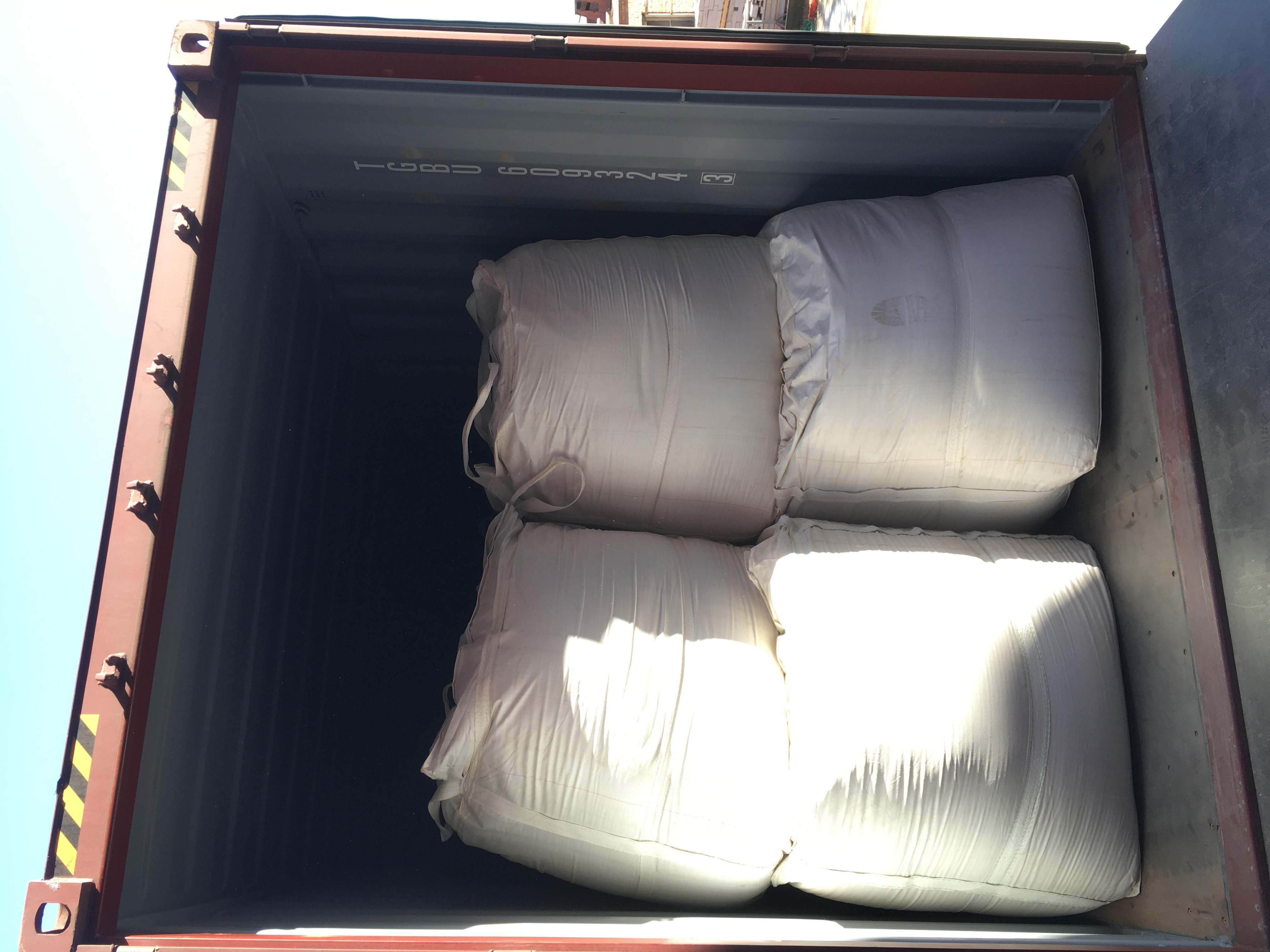
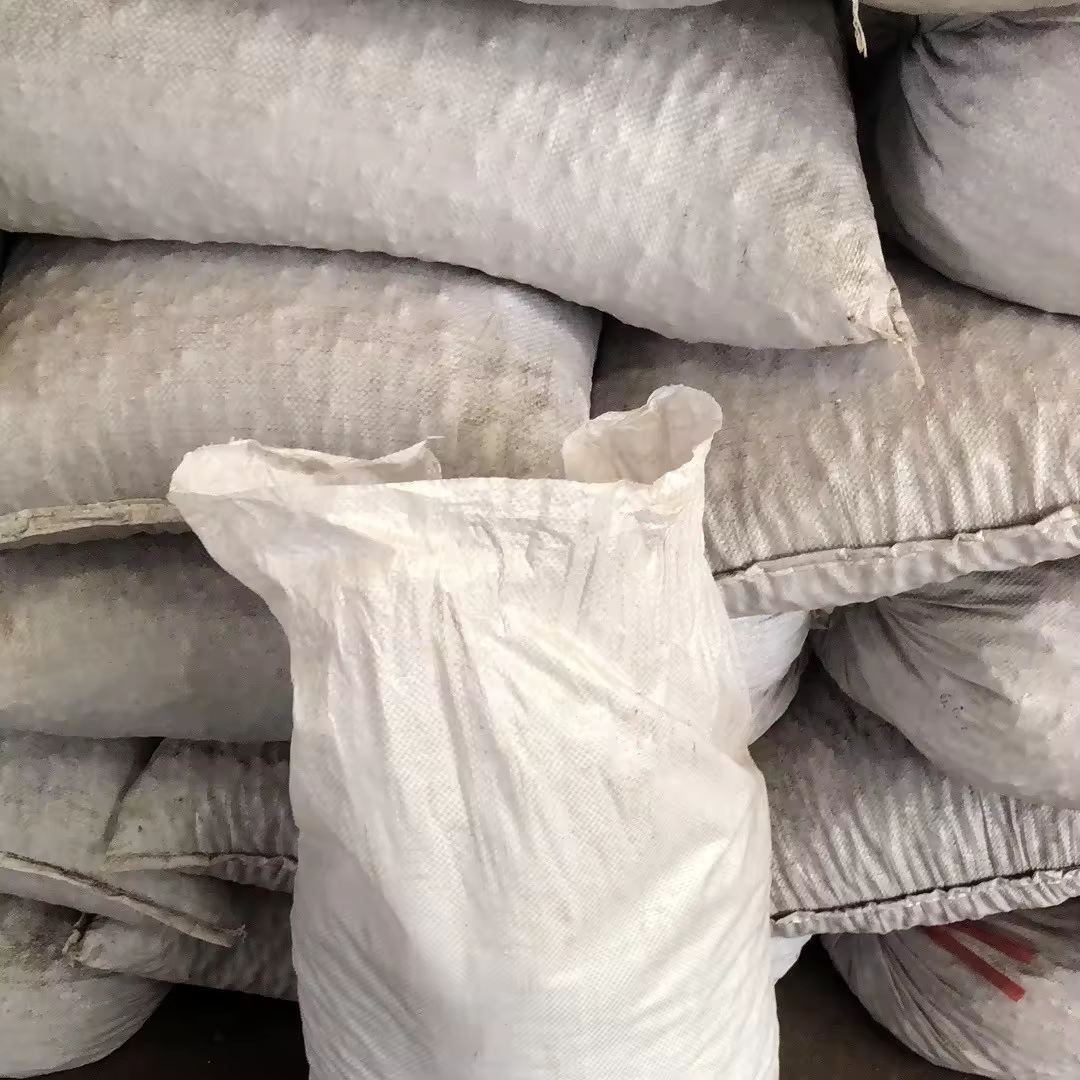
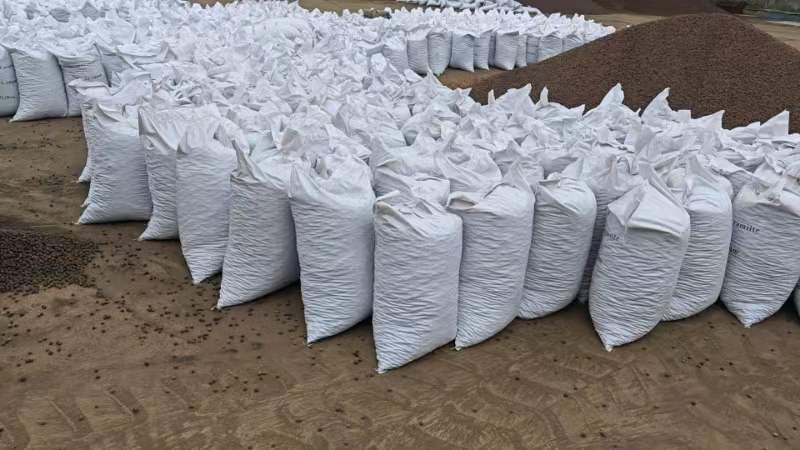
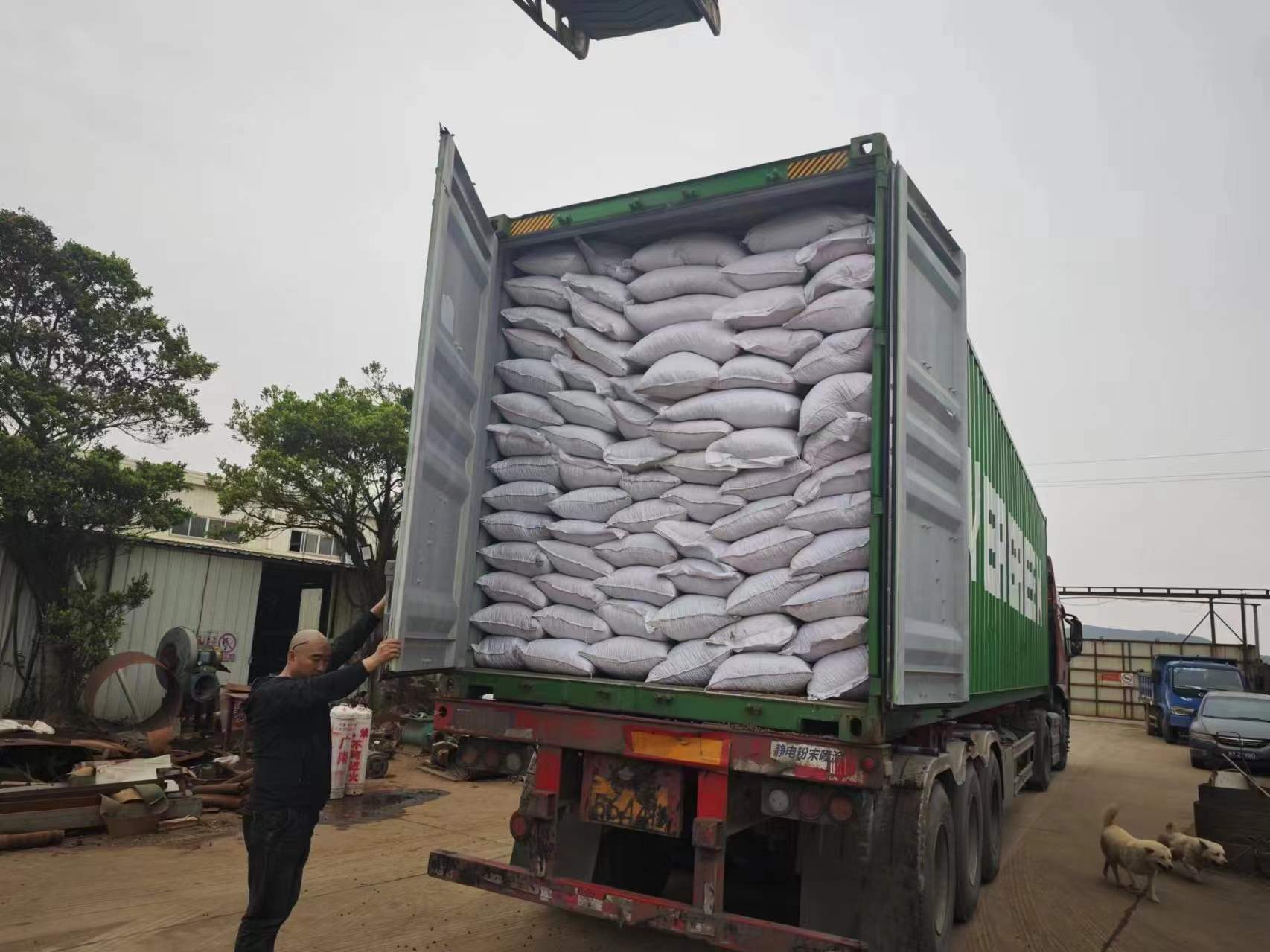
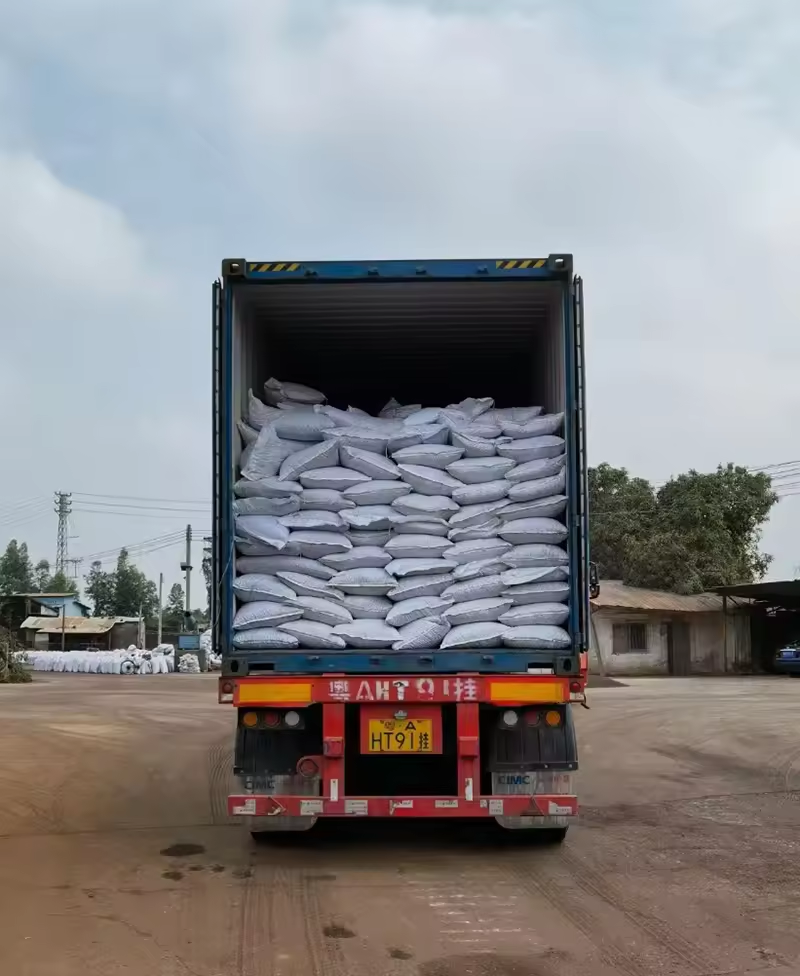

Use of Hydroponics Clay Pebbles
Hydroponics, a soil-less growing technique, has gained significant traction in modern agriculture due to its efficiency and sustainability. One of the most popular growing mediums used in hydroponic systems is hydroponics clay pebbles, also known as expanded clay aggregate (ECA). These lightweight, porous pebbles provide an excellent growing environment for plants, offering both structural support and enhanced water retention. In this article, we explore the benefits and applications of hydroponics clay pebbles in various hydroponic systems, their role in promoting plant growth, and how businesses can incorporate them into their operations.
Benefits of Hydroponics Clay Pebbles
Hydroponics clay pebbles are favored for their lightweight nature and unique structure. Made from natural clay, they are expanded in a kiln to create a highly porous, stable material that allows for excellent water drainage and oxygenation. This ensures that plant roots receive the necessary nutrients and oxygen, which is crucial for healthy growth in a hydroponic environment. One of the primary benefits of clay pebbles for hydroponics is their ability to retain moisture while allowing excess water to drain away, preventing waterlogging and root rot. This moisture retention is essential for the success of hydroponic systems, where plants rely on a constant supply of water and nutrients. Additionally, hydroponics clay pebbles are pH-neutral, making them compatible with a wide range of hydroponic nutrients and ensuring they do not alter the pH balance of the solution. Another key advantage of hydroponics clay pebbles is their reusability. After each growing cycle, the pebbles can be cleaned and reused, making them an eco-friendly and cost-effective option for commercial growers. This longevity, coupled with their ability to provide superior root support, makes bulk clay pebbles for hydroponics an excellent investment for large-scale operations.
Applications of Clay Pebbles in Hydroponics Systems
The versatility of clay pebbles for hydroponics makes them suitable for various hydroponic systems, including nutrient film technique (NFT), deep water culture (DWC), and drip systems. In NFT and DWC systems, hydroponics clay pebbles provide a stable medium for plants to anchor their roots while still allowing for easy nutrient absorption from the solution. They also offer excellent aeration, which is crucial for preventing root diseases and ensuring optimal plant health. For those looking to purchase clay pebbles for hydroponics near me, local suppliers often offer both small and bulk quantities, catering to the needs of both hobbyists and large-scale growers. The uniform size and consistency of hydroponics clay pebbles ensure that they perform equally well in various systems, providing a reliable solution for growers across different types of hydroponic setups. The highly porous structure of hydroponics clay pebbles also makes them suitable for creating a stable base for other hydroponic media, such as perlite or vermiculite, adding further customization options for growers who need to adjust their growing medium to suit specific crops or growing conditions.
Choosing Bulk Clay Pebbles for Hydroponics
For businesses engaged in large-scale hydroponic operations, purchasing bulk clay pebbles for hydroponics is an efficient way to secure a high-quality growing medium at a competitive price. When sourcing bulk clay pebbles for hydroponics, it is important to consider factors such as particle size, uniformity, and cleanliness. High-quality pebbles should be free from dust and contaminants, which could affect plant health and nutrient uptake. In addition, businesses should ensure they are sourcing their hydroponics clay pebbles from reputable suppliers who provide products that meet industry standards. By purchasing from trusted sources, businesses can avoid common issues such as poor water retention or inconsistent quality, ensuring that their hydroponic systems run smoothly and efficiently.
The use of hydroponics clay pebbles in modern agriculture has revolutionized the way plants are grown, providing a highly efficient and sustainable growing medium. These pebbles offer superior aeration, moisture retention, and reusability, making them an excellent choice for both small-scale hobbyists and large-scale commercial growers. Whether you are searching for clay pebbles for hydroponics near me or looking to purchase bulk clay pebbles for hydroponics for your business, this versatile medium is essential for optimizing hydroponic plant growth. With their ability to support plant health and reduce maintenance costs, hydroponics clay pebbles continue to be a top choice for those looking to enhance their hydroponic systems.
What Are Clay Pebbles for Hydroponics Made Of?
Hydroponics clay pebbles are a highly versatile and essential growing medium in hydroponic agriculture. These lightweight expanded clay aggregates (ECA) are designed to support plant growth without the need for soil. Hydroponic systems, which rely on water and nutrients to feed plants, require a medium that offers excellent aeration, drainage, and moisture retention. Clay pebbles for hydroponics fulfill these needs, offering growers an optimal environment for plant root development. In this article, we will delve into the composition and manufacturing process of hydroponics clay pebbles, exploring how these aggregates are made and what makes them such a popular choice for both commercial and home growers.
The Composition of Hydroponics Clay Pebbles
Hydroponics clay pebbles are primarily made from natural clay, which is sourced from high-quality deposits rich in minerals. The raw clay is carefully selected for its ability to expand when exposed to heat. The clay used in the production of hydroponics clay pebbles is known for its lightweight properties and natural porosity, making it an ideal medium for hydroponic systems. To create clay pebbles for hydroponics, the raw clay undergoes an extensive heating process. In a kiln, the clay is expanded at high temperatures, typically between 1,000 to 1,200 degrees Celsius (1,832 to 2,192 degrees Fahrenheit). This process causes the clay particles to expand, forming small, lightweight pebbles with a rough, porous surface. The expansion not only makes the pebbles lightweight but also increases their surface area, providing greater water retention and aeration capacity. This allows hydroponics clay pebbles to hold moisture while still providing ample oxygen to plant roots, preventing root rot and promoting healthy growth. Once expanded, the pebbles are cooled and graded based on size and uniformity. The resulting product is a high-quality, lightweight material that offers excellent drainage and aeration properties—ideal for hydroponic systems.
Key Features of Clay Pebbles for Hydroponics
Clay pebbles for hydroponics possess several key features that make them a preferred growing medium for hydroponic systems:
I. Lightweight and Porous: Due to the expansion process, hydroponics clay pebbles are very lightweight and highly porous. This allows them to hold and retain moisture, yet still drain excess water effectively, preventing waterlogging and root rot.
II. pH-Neutral: Clay pebbles for hydroponics are pH-neutral, meaning they do not alter the pH levels of the hydroponic nutrient solution. This is crucial for maintaining the ideal pH balance required for optimal plant growth.
III. Non-Toxic: The natural clay used in the production of hydroponics clay pebbles is free from harmful chemicals, making them safe for plants and the environment. Their inert nature means they do not release harmful substances into the nutrient solution.
IV. Reusability: One of the significant advantages of hydroponics clay pebbles is their reusability. After each growing cycle, the pebbles can be cleaned and sterilized, allowing them to be reused for multiple planting cycles, making them a cost-effective solution for commercial growers.
Sourcing Bulk Clay Pebbles for Hydroponics
For businesses or large-scale hydroponic operations, purchasing bulk clay pebbles for hydroponics is a practical solution. When looking for clay pebbles for hydroponics near me, it’s important to source from reliable suppliers who provide high-quality products. High-quality hydroponics clay pebbles should be consistent in size and shape, free from dust and impurities, and made from durable materials that can withstand the rigors of hydroponic farming. Many suppliers offer bulk clay pebbles for hydroponics, which are ideal for large-scale operations that require large quantities of growing medium. These bulk purchases can help businesses reduce costs while ensuring they have a consistent supply of high-quality pebbles for their hydroponic systems.
Hydroponics clay pebbles are made from natural clay that is expanded at high temperatures to create lightweight, porous aggregates perfect for hydroponic systems. The process of expanding the clay enhances its ability to retain moisture, improve aeration, and support plant roots, making it an excellent choice for growers. Whether you're looking for clay pebbles for hydroponics near me or considering a bulk purchase for a commercial operation, hydroponics clay pebbles provide an efficient, eco-friendly, and reusable medium that is essential for successful hydroponic farming. With their high quality and performance, hydroponics clay pebbles continue to be a top choice for businesses looking to optimize their hydroponic growing systems.
| اسم المنتج | LECA، سيرامسيت موسع، كرات طينية خفيفة الوزن، حصى طينية للبستنة |
| مظهر | كرات بنية خفيفة الوزن |
| الأحجام الرئيسية | 1-4 مم، 4-8 مم، 8-10 مم، 11-14 مم، 8-16 مم، 10-35 مم |
| الكثافة الظاهرية | 0.25-0.45 جم/سم3 |
| نقاء | ≥99% |
| درجة الحموضة | 6.5-7.5 |
| امتصاص الماء | 15% كحد أقصى |
| التعبئة والتغليف | 50 لتر/كيس، 1100 لتر/طن كيس، التعبئة والتغليف حسب الطلب. |
ما يقوله عملاؤنا عن حصى الطين المائية
الأسئلة الشائعة حول حصى الطين للزراعة المائية
-
من ماذا تتكون الحصى الطينية المستخدمة في الزراعة المائية؟
حصى الطين المائية مصنوعة من الطين الطبيعي الذي يتم تسخينه في درجات حرارة عالية للتمدد وتشكيل حبيبات خفيفة الوزن ومسامية.
-
كيف يتم استخدام حصى الطين المائية في البستنة؟
تُستخدم حصى الطين كوسط نمو في أنظمة الزراعة المائية. فهي توفر ثباتًا لجذور النباتات، كما تُعزز التهوية الجيدة والاحتفاظ بالماء.
-
هل حصى الطين المائية قابلة لإعادة الاستخدام؟
حصى الطين قابلة لإعادة الاستخدام. بعد الاستخدام، يجب تنظيفها وتعقيمها لإزالة أي بقايا نباتية أو طحالب أو مسببات أمراض.
-
هل تحتاج حصى الطين المائية إلى النقع قبل الاستخدام؟
نعم، يوصى بنقع حصى الطين المائية قبل الاستخدام.
-
هل يمكن لحصى الطين المزروعة في الزراعة المائية تحسين الصرف؟
نعم، تتمتع حصى الطين المائية بخصائص تصريف ممتازة بسبب بنيتها المسامية.
-
هل حصى الطين المائية مناسبة لجميع النباتات؟
تعتبر الحصى الطينية المخصصة للزراعة المائية مناسبة لمجموعة واسعة من النباتات، وخاصة تلك التي تنمو في الأنظمة المائية.

































.png)









